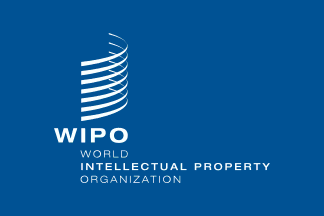Putting China in charge of the world’s intellectual property is a bad idea
Jan. 30, 2020 at 3:16 p.m. PST
On its face, allowing China to assume leadership of the WIPO poses a clear risk to the integrity of the institution, given that the U.S. government has singled out *China as the leading source of intellectual property theft in the world. The Chinese government has made economic espionage, the theft of trade secrets and forced technology transfer key parts of its state-sponsored strategy of economic aggression. If China were to control the WIPO, all kinds of fundamental intellectual property information could go directly into the hands of the Chinese government, and that, in turn, could undermine basic trust and confidence in the international patent system.
“We cannot let a regime that continues to blatantly undermine the rules-based system by failing to ensure open markets or respect for intellectual property rights, ascend as the global leader of intellectual property policy,” Sens. Tom Cotton (R-Ark.) and Charles E. Schumer (D-N.Y.) wrote to President Trump last month.
China’s WIPO leadership bid is just the latest part of its comprehensive effort to assume control of as many U.N. and multilateral organizations as possible. Smartly, Beijing has recognized the importance of playing a leading role in global governance and has devoted enormous resources to its plan.
A look at Beijing’s record reveals that its strategy is not to bolster these institutions for universal benefit but to advance China’s interests. In the U.N. organizations China now leads, the results have been terrible.
In 2015, China took over the leadership of the International Civil Aviation Organization. The ICAO quickly stopped inviting Taiwan to its annual assembly. This week, the ICAO blocked experts on Twitter who demanded that the group include Taiwan in response to the Wuhan coronavirus outbreak.
Last February, reports revealed the ICAO hid for months a major hack of its servers that originated from China. The ICAO leadership then retaliated against the whistleblower who exposed the coverup.
Since China assumed leadership of the International Telecommunication Union (ITU) in 2015, the ITU has drastically increased cooperation with Beijing, among other things by promoting China’s Belt and Road Initiative and defending Chinese telecom giant Huawei. The United Nations’ Department of Economic and Social Affairs (DESA), also led by a Chinese official, is pushing the Belt and Road Initiative and is building a “big data research institute” inside China in partnership with Beijing.
In 2018, Chinese official Meng Hongwei, then the head of Interpol, was secretly sent back to China, where he was prosecuted for corruption and given a 13-year prison sentence.
“Beijing’s ambition to head the WIPO is part of a wider pattern in which the Chinese authorities are looking to take a leadership role in critical rules-based institutions, including but also not limited to the U.N.,” said Christopher Walker, vice president for studies at the National Endowment for Democracy. “They have proved adept at using these positions to transform organizations from within, often in ways that are inhospitable to governance integrity and basic democratic standards.”
Last June, Qu Dongyu, China’s vice foreign minister for agriculture, defeated the U.S.-backed candidate to become the head of the United Nations’ Food and Agriculture Organization by a vote of 108 to 12. That shock spurred a new effort by the United States to up its game.
The State Department reassigned its special envoy for North Korea, Mark Lambert, to a new role overseeing an effort to ensure the integrity of U.N. organizations, with a heavy focus on China. With regard to WIPO, the Trump administration has been waging a quiet but extensive effort to support an alternative candidate, including several phone calls by Secretary of State Mike Pompeo to his counterparts on the issue. Several sources have said that candidate is Singapore’s candidate, Daren Tang.
The U.S. effort is hampered by the administration’s public contempt for the multilateralism and its damaged relationships with allies. Victory is by no means assured.
This is worse than letting the fox into the henhouse. This is akin to choosing a bank robber to be president of the bank. In Beijing’s economic strategy, intellectual property theft is a feature, not a bug.
The United States and its partners who believe in rule of law, transparency and accountability in world governance cannot and should not try to thwart every Chinese attempt to lead international organizations. In this case, though, the stakes are too high not to try.
Read more from Josh Rogin’s archive, follow him on Twitter or subscribe to his updates on Facebook.
Read more




No comments:
Post a Comment
Comments always welcome!